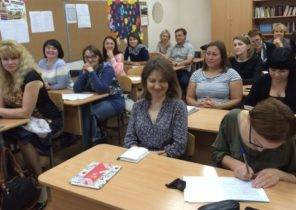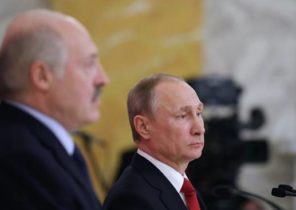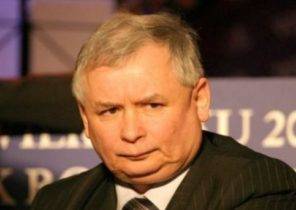
While the heads of state and government of the EU extended for another six months sanctions against Russia, the Eastern Committee of German economy failed a devastating result: “the Total damage from economic sanctions, the EU, Russia and neighbouring countries have reached after three years of their existence at least a significant double-digit, if not triple-digit amounts in billions of euros,” — said one of the tests of the Eastern Committee, which is exclusively provided by the newspaper Handelsblatt.
We are talking about the impact of sanctions, announced in the summer of 2014 after the Russian annexation of the Ukrainian Peninsula of Crimea and the Russian retaliatory measures such as a ban on imports of European and American food. The exact amount to calculate, they say, is difficult: parallel collapsed oil prices further weakened in recession since the beginning of 2014 the Russian economy. These factors are almost impossible to separate from each other.
Russian President Vladimir Putin admits: “Naturally, the sanctions have had an impact on the Russian economy, but mostly they have influenced the foreign economic conjuncture, including the drop in energy prices”. During his hours-long live broadcast with the answers to the questions of citizens two weeks ago he said further: “the UN believes that we lost because of sanctions from 50 to 52 billion US dollars. Those who have announced these sanctions, lost 100 billion,” — said the head of state. “It’s a double-edged sword that deals damage to all”.
When calculating the damage from sanctions experts from the USA, Russia and Germany believe that from 20% to 43% loss in exports to Russia directly depend on the sanctions and about 20% of economic downturn in Russia after 2013.
The transfer of production
How this damage guilty of missing reforms and the fallen price of oil, not only sanctions, showed the following figures: from January 2014 to December 2016, the exports of Germany and the USA to Russia decreased respectively by 41% and 42%. Exports from China, which has not joined the sanctions, for the same period also decreased, still at 33%.
The number of representations of German firms in Russia has decreased as a result of the crisis from six thousand to 5300. It is estimated that because of the sanctions was lost 60 thousand jobs, and as a result of cessation of production for business with Russia — 13.5 billion euros. Cases of bankruptcy, such as Magdeburg engineering company Vakoma Production GmbH, according to the Eastern Committee, “obviously, was the exception.” With the summer of 2016, the lowest point of the downturn in trade with Russia has already been passed. Bilateral trade since then again increased significantly. While exports to this sharply reduced, “it seems that due to binding to the sites of production and better terms of remuneration of investments in Russia increase.” According to the Eastern Committee, “Russia exported less, but produce more in the country”.
East of the Committee is to incrementally lift sanctions if there is significant progress in the implementation of the Minsk agreement for peace in Eastern Ukraine. In addition, the Committee wants to hold serious negotiations between the EU Commission and the Eurasian economic Commission on the establishment of a joint economic space from Lisbon to Vladivostok.
About 40 countries participate in various ways in economic sanctions against Russia. Along with Ukraine, Norway, Canada, Japan and Switzerland under pressure from the EU, joined also are candidates for EU membership, as Albania or Montenegro, while Serbia still refrains. No sanctions against Russia does not put such important economic powers like China, India, Brazil, Turkey, Egypt, Israel, South Africa or South Korea.







